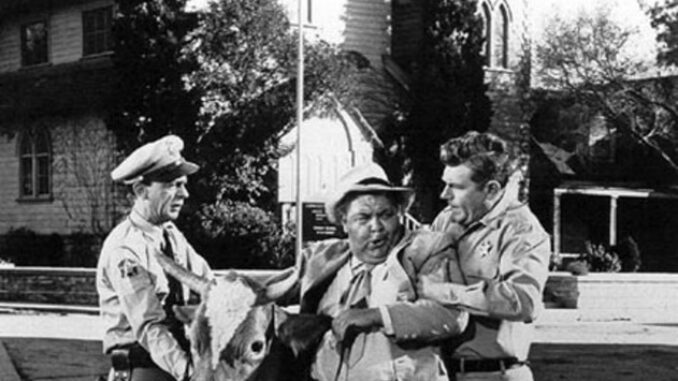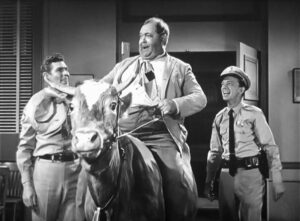
The Andy Griffith Show, which aired from 1960 to 1968, has become an iconic part of American television history. Set in the fictional town of Mayberry, North Carolina, the show follows Sheriff Andy Taylor, played by Andy Griffith, and his quirky sidekick, Deputy Barney Fife, as they deal with the everyday problems of a small community. The show is known for its gentle humor, relatable characters, and uplifting portrayal of American small-town life.
One of the key reasons The Andy Griffith Show remains beloved is its focus on universal themes that continue to resonate with audiences today. Unlike many other TV shows from its era, it didn’t rely on high drama or elaborate plot twists. Instead, it tackled issues like family dynamics, friendships, and morality with warmth and humor. Sheriff Andy Taylor, portrayed by Andy Griffith, was a refreshing departure from the typical tough, no-nonsense lawman. Instead of relying on force or harsh authority, Andy solved problems with common sense, kindness, and patience. This made him a refreshing figure on television and a role model for viewers, especially in a time when many Americans were grappling with the complexities of the modern world.
Andy’s relationships with the residents of Mayberry further showcased the show’s focus on human connection and empathy. The character of Barney Fife, played by Don Knotts, is another central figure whose humor and antics brought much-needed comic relief to the show. Barney’s over-the-top attempts at law enforcement and his constant need for Andy’s help created a dynamic that was both entertaining and heartwarming. Their friendship and the way they navigated the challenges of small-town life together became the heart and soul of the show.

Another major strength of the show was its portrayal of family. Andy’s relationship with his son Opie (played by Ron Howard) became one of the most beloved father-son pairings in TV history. Unlike many depictions of fatherhood at the time, Andy was not distant or authoritarian but a kind, guiding figure who wanted the best for his son. The show often depicted Andy teaching Opie valuable life lessons, whether it was about honesty, kindness, or responsibility. This focus on father-son relationships resonated with viewers and made The Andy Griffith Show feel like more than just a TV show—it became a reflection of real-life values and family dynamics.
The charm of The Andy Griffith Show lies not only in its simple, wholesome storytelling but also in its emphasis on the importance of community. Mayberry, though fictional, was a model of how people could live in harmony, helping each other out, and working together to solve problems. The sense of unity in Mayberry was something that many people yearned for in an increasingly complicated and fast-paced world. In Mayberry, everyone knew everyone, and the residents often came together to support one another, whether it was in times of trouble or just for a casual chat at the local diner. In a way, Mayberry was an idealized version of American small-town life, a place where people cared for each other, and good always triumphed over evil.
The show’s success and enduring popularity are a testament to its timeless appeal. The Andy Griffith Show has influenced countless other TV shows that followed, many of which have tried to capture the same warmth, humor, and human connection that made the show so special. Even decades after it went off the air, The Andy Griffith Show continues to find new audiences through reruns and streaming platforms. Its themes of kindness, friendship, and community are just as relevant today as they were when the show first aired. For all these reasons, The Andy Griffith Show will forever remain a cherished classic of American television.
